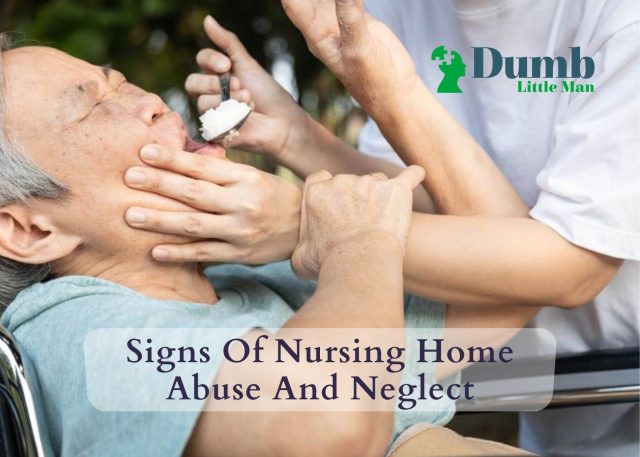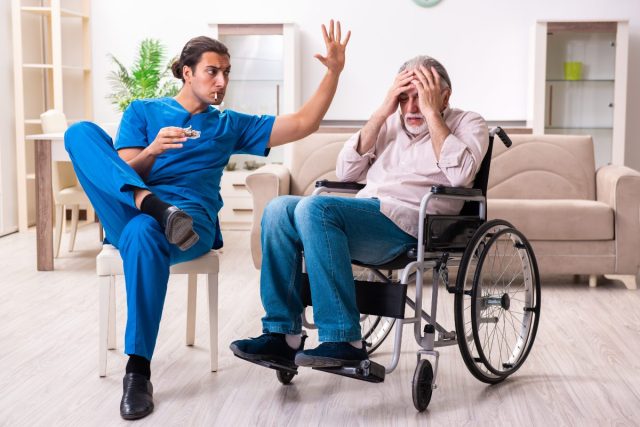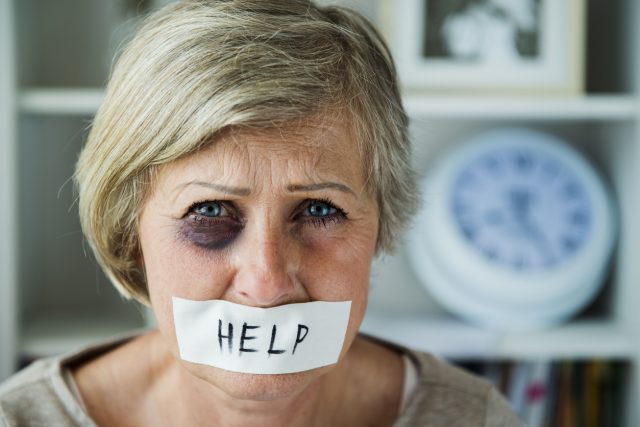Signs Of Nursing Home Abuse And Neglect
By Dumb Little Man
January 10, 2024

By becoming aware of the warning signs of nursing home abuse and neglect, you may be able to see any wrongdoing and take action before it has major repercussions. You must be aware of the warning signs of nursing home abuse and act quickly to stop it.
Forms of Abuse in Nursing Homes
The World Health Organization (WHO) has identified nursing home abuse and neglect as a serious worldwide health issue. WHO cautions that abuse in nursing homes could have major repercussions for the senior population, which is already at risk.

According to research, abuse in care facilities can result in:
- Depression
- Financial meltdown
- Physical Injuries
- Wrongful Death
Recovery from nursing home abuse may be much harder and take much longer for elderly persons than for younger populations.
Tragically, abuse and neglect in nursing homes are all too common. According to WHO investigations, nearly 65% of employees acknowledged abusing staff in nursing homes.
Residents in nursing facilities may encounter several forms of abuse, including:
- Violent abuse
- Neglect
- Sexual assault
- Financial mistreatment or exploitation
- Psychological or emotional abuse
It's crucial to recognize the warning symptoms of nursing home abuse and neglect to protect loved ones and prevent needless suffering. If you notice any of these signs, it is best to consult one of the several California attorneys handling nursing home neglect cases.
Nursing Homes: Physical Abuse Warning Signs

Compared to other forms of nursing home abuse, the warning signs of physical abuse are typically easier to spot. The following are a few typical indications of physical abuse in nursing homes:
- Abrasions
- Bone fractures
- Pressure marks and burns
- Mysterious welts or bruises
Unfortunately, a wide range of worker maltreatment occurs in nursing facilities. The suffering of a nursing home patient is made worse by emotional abuse, which occurs when someone intentionally causes them emotional harm through their words or actions.
Those who experience physical abuse in nursing homes may start withdrawing from their loved ones. Because physical abuse can also result in non-physical signs like unexpected behavior changes, it is crucial to keep an eye on them.
Warning Signs of Nursing Home Neglect
Compared to other types of nursing home abuse, patient neglect can be harder to spot. This is because it's not always easy to spot the indicators of nursing home neglect.
The following are some indicators of nursing home neglect:
- Bedsores (also called pressure ulcers or pressure sores)
- Refusal to provide elderly patients with necessary medical care
- Bad hygiene
- Dehydration symptoms like persistent thirst or dry skin
- Dirty clothes or linens
- Unexpected shifts in mental health
- Unaccounted-for injuries
- Unclean living circumstances
- Loss of weight or other indicators of malnutrition
Nursing Homes: Sexual Abuse Warning Signs

Contrary to popular belief, there are not always obvious indications of sexual abuse in nursing homes. People frequently find it too difficult even to consider the possibility of someone exploiting elderly residents sexually. Many nursing home patients have Alzheimer's disease or other forms of dementia, which make accurate reporting of abuse much more difficult, making spotting the indicators of sexual abuse in nursing homes even more complicated.
The following are possible indications of sexual abuse in nursing homes:
- Any report of sexual assault regardless of the victim's mental state
- Becoming afraid of male caregivers
- Bruising on the breasts, inner thighs, or vaginal region
- Post-traumatic stress disorder symptoms (PTSD)
- Clothing or bedding that is torn, discolored, or covered in blood
- Unidentified genital bleeding
- Unknown sexually transmitted illnesses (STDs)
Risk factors for nursing home abuse
Nursing home residents are more at risk in establishments without an abuse prevention program. Effective policies include recommendations for-
- Background checks
- How to keep the environment secure
- Effective employee training Techniques to lower staff turnover
- Additionally, evidence reveals that some patients are likely at greater risk than others to experience maltreatment in nursing homes.
How to Act If You Suspect Abuse in a Nursing Home
The most crucial thing to remember is that abuse in nursing homes won't end on its own. You must take immediate action to safeguard your loved one and save others from possibly going through the same situation.
If a nursing home resident is in immediate danger, dial 911 immediately.
It can be a good idea to get in touch with a skilled nursing home abuse attorney who can assess your case and inform you of your alternatives if you're unsure of your legal rights or what to do. Without a skilled attorney, defining what constitutes nursing home abuse or neglect can be challenging because rules differ by state.
Dumb Little Man
At Dumb Little Man, we strive to provide quality content with accuracy for our readers. We bring you the most up-to-date news and our articles are fact-checked before publishing.


